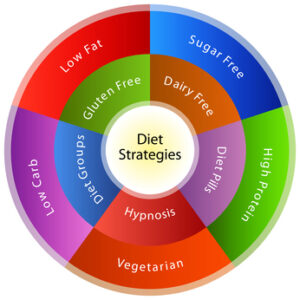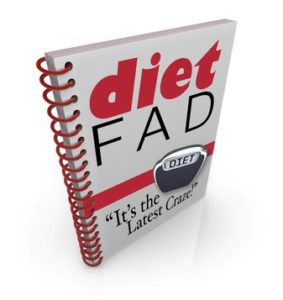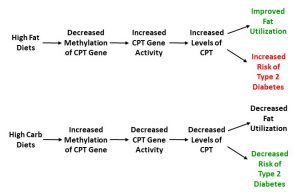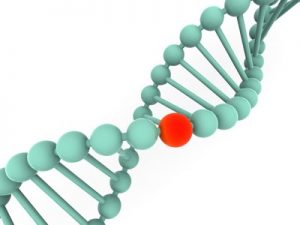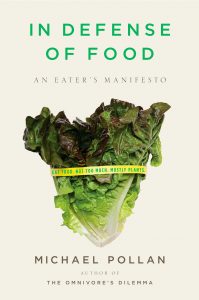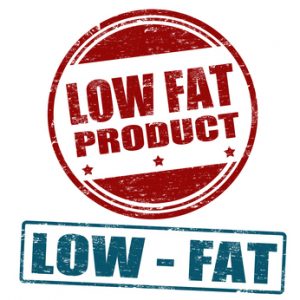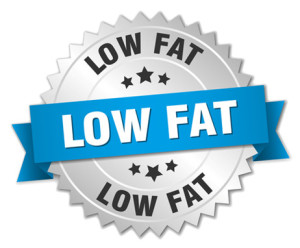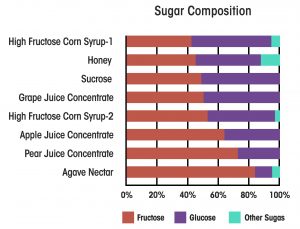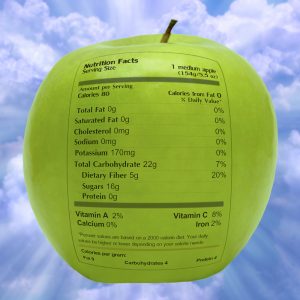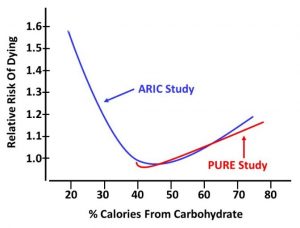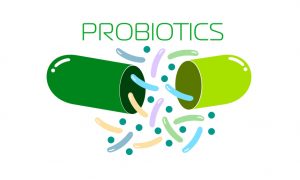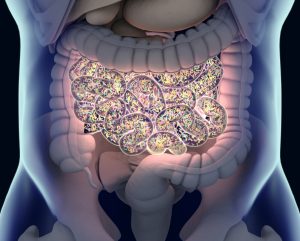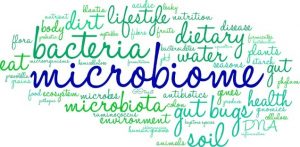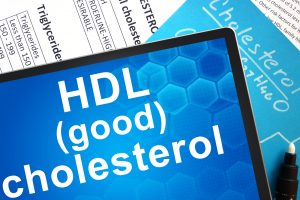Which Diet Is Best For You?
Author: Dr. Stephen Chaney
 The top 3 claims the advocates of every popular diet make are:
The top 3 claims the advocates of every popular diet make are:
- It will help you lose weight.
- It reduces your risk of diabetes.
- It reduces your risk of heart disease.
The truth is any restrictive diet helps you lose weight. And when you lose weight, you improve blood sugar control. Which, of course, reduces your risk of developing diabetes.
But what about heart disease? Which diets are heart healthy? When it comes to heart disease the claims of diet advocates are often misleading. That’s because the studies these advocates use to support their claims are often poor quality studies. Many of these studies:
- Look at markers of heart disease risk rather than heart disease outcomes. Markers like LDL cholesterol, triglycerides, c-reactive protein, etc. are only able to predict possible heart disease outcomes. To really know which diets are heart healthy you have to measure actual heart disease outcomes such as heart attacks, stroke, and cardiovascular deaths.
- Are too short to provide meaningful results. Many of these studies last only a few weeks. You need much longer to measure heart disease outcomes.
- Are too small to provide statistically significant results. You need thousands of subjects to be sure the results you are seeing are statistically significant.
- Have not been confirmed by other studies. The Dr. Strangeloves of the world like to “cherry pick” the studies that support the effectiveness of their favorite diet. Objective scientists know that any individual study can be wrong. So, they look for consensus conclusions from multiple studies.
A recent study (G Karam et al, British Medical Journal, 380: e072003, 2023) avoided all those pitfalls. The investigators conducted a meta-analysis of 40 high-quality clinical studies with 35,548 participants to answer the question, “Which diets are heart healthy?”
How Was The Study Done?
 The authors started by searching all major databases of clinical studies for studies published on the effect of diets on heart disease outcomes through September 2021.
The authors started by searching all major databases of clinical studies for studies published on the effect of diets on heart disease outcomes through September 2021.
They then performed a meta-analysis of the data from all studies that:
- Compared the effect of a particular diet to minimal dietary intervention (defined as not receiving any advice or receiving dietary information such as brochures or brief advice from their clinician with little or no follow-up).
- Looked at heart disease outcomes such as all cause mortality, cardiovascular mortality, non-fatal heart attacks, stroke, and others.
- Lasted for at least 9 months (average duration = 3 years).
- Were high-quality studies.
Using these criteria:
- They identified 40 studies with 35,548 participants for inclusion in their meta-analysis.
-
- From those 40 studies, they identified 7 diet types that met their inclusion criteria (low fat (18 studies), Mediterranean (12 studies), very low fat (6 studies), modified fat (substituting healthy fats for unhealthy fats rather than decreasing fats, 4 studies), combined low fat and low sodium (3 studies), Ornish (3 studies), Pritikin (1 study).
One weakness of meta-analyses is that the design of the studies included in the meta-analysis is often different. Sometimes they don’t fit together well. So, while the individual studies are high-quality, a combination of all the studies can lead to a conclusion that is low quality or moderate quality.
Finally, the data were corrected for confounding factors such as obesity, exercise, smoking, and medication use.
Which Diets Are Heart Healthy?
 Now that you understand the study design, we are ready to answer the question, “Which diets are heart healthy?” Here is what this study found:
Now that you understand the study design, we are ready to answer the question, “Which diets are heart healthy?” Here is what this study found:
Compared to minimal intervention,
- The Mediterranean diet decreased all cause mortality by 28%, cardiovascular mortality by 45%, stroke by 35%, and non-fatal heart attacks by 52%.
- Low fat diets decreased all cause mortality by 16% and non-fatal heart attacks by 23%. The effect of low fat diets on cardiovascular mortality and stroke was not statistically significant in this meta-analysis.
-
- For both the Mediterranean and low fat diets, the heart health benefits were significantly better for patients who were at high risk of heart disease upon entry into the study.
-
- The evidence supporting the heart health benefits for both diets was considered moderate quality evidence for this meta-analysis. [Remember that the quality of any conclusion in a meta-analysis is based on both the quality of evidence of the individual studies plus how well the studies fit together in the meta-analysis.]
- While the percentage of risk reduction appears to be different for the Mediterranean and low fat diets, the effect of the two diets on heart health was not considered significantly different in this study.
- The other 5 diets provided little, or no benefit, compared to the minimal intervention control based on low to moderate quality evidence.
The authors concluded, “This network meta-analysis found that Mediterranean and low fat dietary programs probably reduce the risk of mortality and non-fatal myocardial infarction [heart attacks] in people at increased cardiovascular risk. Mediterranean dietary programs are also likely to reduce the risk of stroke. Generally, other dietary programs were not superior to minimal intervention.”
Which Diet Is Best For You?
 The fact that this study found both the Mediterranean diet and low fat diets to be heart healthy is not surprising. Numerous individual studies have found these diets to be heart healthy. So, it is not surprising when the individual studies were combined in a meta-analysis, the meta-analysis also concluded they were heart healthy. However, there are two important points I would like to make.
The fact that this study found both the Mediterranean diet and low fat diets to be heart healthy is not surprising. Numerous individual studies have found these diets to be heart healthy. So, it is not surprising when the individual studies were combined in a meta-analysis, the meta-analysis also concluded they were heart healthy. However, there are two important points I would like to make.
- The diets used in these studies were designed by trained dietitians. That means the low fat studies did not use Big Food, Inc’s version of the low fat diet in which fatty foods are replaced with highly processed foods. In these studies, fatty foods were most likely replaced with whole or minimally processed foods from all 5 food groups.
- The Mediterranean diet is probably the most studied of current popular diets. From these studies we know the Mediterranean diet improves brain health, gut health, and reduces cancer risk.
As for the other 5 diets (very low fat, modified fat, low fat and low sodium, Ornish, and Pritikin), I would say the jury is out. There is some evidence that these diets may be heart healthy. But very few of these studies were good enough to be included in this meta-analysis. Clearly, more high-quality studies are needed.
Finally, you might be wondering why other popular diets such as paleo, low carb, and very low carb (Atkins, keto, and others) were left out of this analysis. All I can say is that it wasn’t by design.
The authors did not select the 7 diets described in this study and then search for studies testing their effectiveness. They searched for all studies describing the effect of diets on heart health. Once they identified 40 high-quality studies, they grouped the diets into 7 diet categories.
I can only conclude there were no high-quality studies of paleo, low carb, or very low carb diets that met the criteria for inclusion in this meta-analysis. The criteria were:
- The effect of diet on heart health must be compared to a control group that received no or minimal dietary advice.
- The study must measure heart disease outcomes such as all cause mortality, cardiovascular mortality, non-fatal heart attacks, and stroke.
- The study must last at least 9 months.
- The study must be high-quality.
Until these kinds of studies are done, we have no idea whether these diets are heart healthy or not.
So, what’s the takeaway for you? Which diet is best for you? Both low fat diets and the Mediterranean diet are heart healthy provided the low fat diet consists of primarily whole or minimally processed foods. Which of these two diets is best for you depends on your food preferences.
The Bottom Line
Many of you may have been warned by your doctor that your heart health is not what it should be. Others may be concerned because you have a family history of heart disease. You want to know which diets are heart healthy.
Fortunately, a recent study answered that question. The authors performed a meta-analysis of 40 high-quality studies that compared the effect of various diets with the effect of minimal dietary intervention (doctors’ advice or diet brochure) on heart disease outcomes.
From this study they concluded that both low fat diets and the Mediterranean diet probably reduce mortality and the risk of non-fatal heart attacks, and that the Mediterranean diet likely reduces stroke risk.
Other diets studied had no significant effect on heart health in this study. That does not necessarily mean they are ineffective. But it does mean that more high-quality studies are needed before we can evaluate their effect on heart health.
So, what’s the bottom line for you? Both low fat diets and the Mediterranean diet are heart healthy provided the low fat diet consists of primarily whole or minimally processed foods Which of these two diets is best for you depends on your food preferences.
For more information on this study, read the article above.
These statements have not been evaluated by the Food and Drug Administration. This information is not intended to diagnose, treat, cure, or prevent any disease.
___________________________________________________________________________
My posts and “Health Tips From the Professor” articles carefully avoid claims about any brand of supplement or manufacturer of supplements. However, I am often asked by representatives of supplement companies if they can share them with their customers.
My answer is, “Yes, as long as you share only the article without any additions or alterations. In particular, you should avoid adding any mention of your company or your company’s products. If you were to do that, you could be making what the FTC and FDA consider a “misleading health claim” that could result in legal action against you and the company you represent.
For more detail about FTC regulations for health claims, see this link.
https://www.ftc.gov/business-guidance/resources/health-products-compliance-guidance




